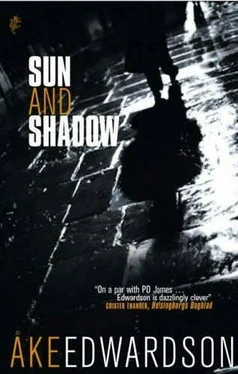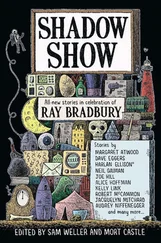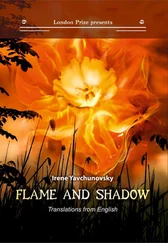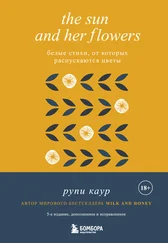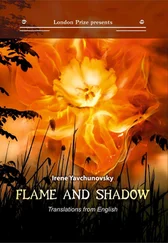“Could be.”
“There’s something perverse about the whole idea of special call-out units,” Vejehag said. “They should be sent on Swedish-language courses instead of all that goddam macho nonsense. We talk every day, but it’s pretty rare that the Gothenburg police force gets to storm a Boeing 757. Even so, that bunch practices it every few days.”
“We sometimes catch villains using methods other than words,” Bartram said.
“Yes. Now, let’s see if we can get these boys somewhere warm and cozy.”

Maria Ostergaard felt cold. She’d been in such a rush to get away from home that she’d forgotten her gloves. Her hands felt like lumps of ice only a couple of minutes after they’d left the café.
“Where should we go?” Patrik said.
“I wanted to stay where we were,” answered Maria.
“I didn’t like the people in there. Can’t we go back to your place?”
“Mom’s impossible, completely around the bend. Why can’t we go back to your place?”
“Dad’s impossible, completely around the bend,” said Patrik, with no trace of a smile.
There wasn’t a soul to be seen in Vasagatan. Trams clattered over Vasaplatsen. A woman got off the tram that had approached along Aschebergsgatan and disappeared into one of the apartment buildings. As she opened the front door her face was lit up by the light from the entrance hall and the streetlamps.
“I recognize her,” Maria said. “That woman going in through the door over there.”
“Oh, yeah? What about it?”
“She’s pretty.”
“What about it?”
“She lives with that guy who’s a detective, a cop. Mom works for the police every other week, that’s how I know of him.”
“You mean the police have vicars?”
“Evidently. I think his name’s Winter. That detective. Cool name, don’t you think?”
“Hmm.”
They walked across Vasaplatsen.
A squad car came down Aschebergsgatan from Johanneberg. Morelius was driving.
“I recognize those kids over there,” he said. “Those two, next to that stand.”
“I recognize the girl at least,” Bartram said. “Small world.”
“Winter lives over there, to the left, incidentally,” Morelius said. “The star of the force. That entrance there,” he said, gesturing with his hand as they drove past the building.
“How do you know?” asked Vejehag.
“I drove him home one night.”
“Winter?” said Bartram. “Oh, right. So that’s where he lives?”
When Winter got up, the square of sky he could see through his bathroom window was gray. When he went out the door, the same thing applied to the whole horizon. But it was warm. He was wearing a short-sleeved silk shirt, cool linen trousers, and sandals with no socks.
He passed the landlord and landlady, whose kitchen was next to the front door; they seemed to spend all day under the parasol, or under the sheet of canvas that had been stretched over half the patio when Winter arrived yesterday. Yesterday. Hadn’t it been longer than that?
As he passed by, the woman said something to him. She held up a finger, as if issuing a warning. He thought he had heard the word chicas. Yes, she had said “No chicas” and pointed to his room at the other end of the house, then added what sounded like “en la habitación. ” Her man smiled, perhaps in embarrassment. After a few seconds the penny dropped, and Winter made a dismissive gesture. No, of course not. He wouldn’t bring any women back to his room.
Winter turned right into Calle Luna and then left into Calle del Sol before coming to a little square. He continued to the open Plaza Puente de Málaga and found a café in the corner to the left: GASPAR. PANADERÍA AND CAFETERÍA. He sat outside at the only empty table. It was eight-thirty He was surrounded on all sides by Spaniards, men and women. They were drinking coffee with milk in tall glasses and eating small bread rolls with butter and jam, or just olive oil and salt. A waiter came, and Winter managed to order café con leche and pan with confitura. “Mantequilla?” the waiter asked, and Winter nodded without knowing what it meant. Butter, perhaps?
His coffee was duly served and was very good, strong espresso with hot milk. The bread arrived and was also hot. Mantequilla. was indeed butter. He prepared his breakfast sandwiches while the Spaniards on all sides coughed their way into the new day between deeply savored drags on their cigarettes. A man at the next table turned away and started coughing something awful. Another one joined in. It was like sitting through breakfast in a sanatorium. When the man at the next table had cleared what remained of his lungs, he signaled to the white-clad waiter as if to a nurse, and the waiter disappeared into the café before reemerging with what Winter assumed was a glass of water. But as the waiter passed he could smell gin. A glass of gin to start the morning. Why not? Winter smiled, finished his breakfast and lit a Corps cigarillo. Now everybody at the Gaspar café was smoking. The smoke drifted up toward the sky, which was gray, still. There was a different kind of stillness today, compared with yesterday, a silence that he hadn’t noticed then. He couldn’t work out where the sun was, which seemed almost an impossibility in a place like this.
Winter checked his watch and ordered another coffee. He still hadn’t finished his cigarillo. A young woman was walking from table to table, handing out leaflets. She came to Winter and he automatically held out his hand. She gave him a leaflet, her eyes fixed on his cigarillo. The message was from Centro Cristiano Exodus. He read it. It urged him to say NO! to heroina, cocaina, alcohol, tabaco, condenación, juegos de azar, Éxtasis, and SÍ! to el amor, la sinceridad, la paz, el perdón, la paciencia, la libertad, la vida…
He stubbed out his cigarillo, paid his bill, and checked his watch again. An Andalusian dog wandered over the road, chasing shadows. Winter thought about his father. He felt a drop of rain. The sky had turned a deeper shade of stone. The mountains beyond the avenida were an extension of the sky and hence whiter now than they had been before. Everything looked different. The buildings no longer reflected any light, which made people’s skin seem luminous. The rain was getting heavier, and Winter could picture his father in his hospital bed. The holiday season on the Costa del Sol was coming to an end, and Winter tried to avoid seeing symbolism in what was happening now, here and in the room at the Hospital Costa del Sol.
He crossed over the wide Avenida des Ramón y Cajal and continued as far as the promenade. Another Andalusian dog wandered over the paving stones, stopped outside a café, and listened to the flamenco music being played with the treble turned up. It cocked its leg against a wall.
The sea flowed into the sky, just like the mountains in the north. The feeling that the holiday season was over was stronger down here by the beach. Winter took off his sandals and walked to the water’s edge. A beach guard was carrying parasols. A café was open, its curtains flapping in the breeze. Winter could feel the wind now, and what seemed almost like a blast of cold. Sand was being whipped up as the wind strengthened. The song coming from the café was suddenly audible on the beach below. Winter thought about his child, and how the winter was creeping up on all sides. He thought about Angela, and suddenly longed to phone her; but he knew that she would be at work.
For people living down here the promise of winter must be a kind of hope, he thought. A mixture of desire and longing. Maybe people living here would now be able to be themselves, instead of constantly putting on a show.
Читать дальше
